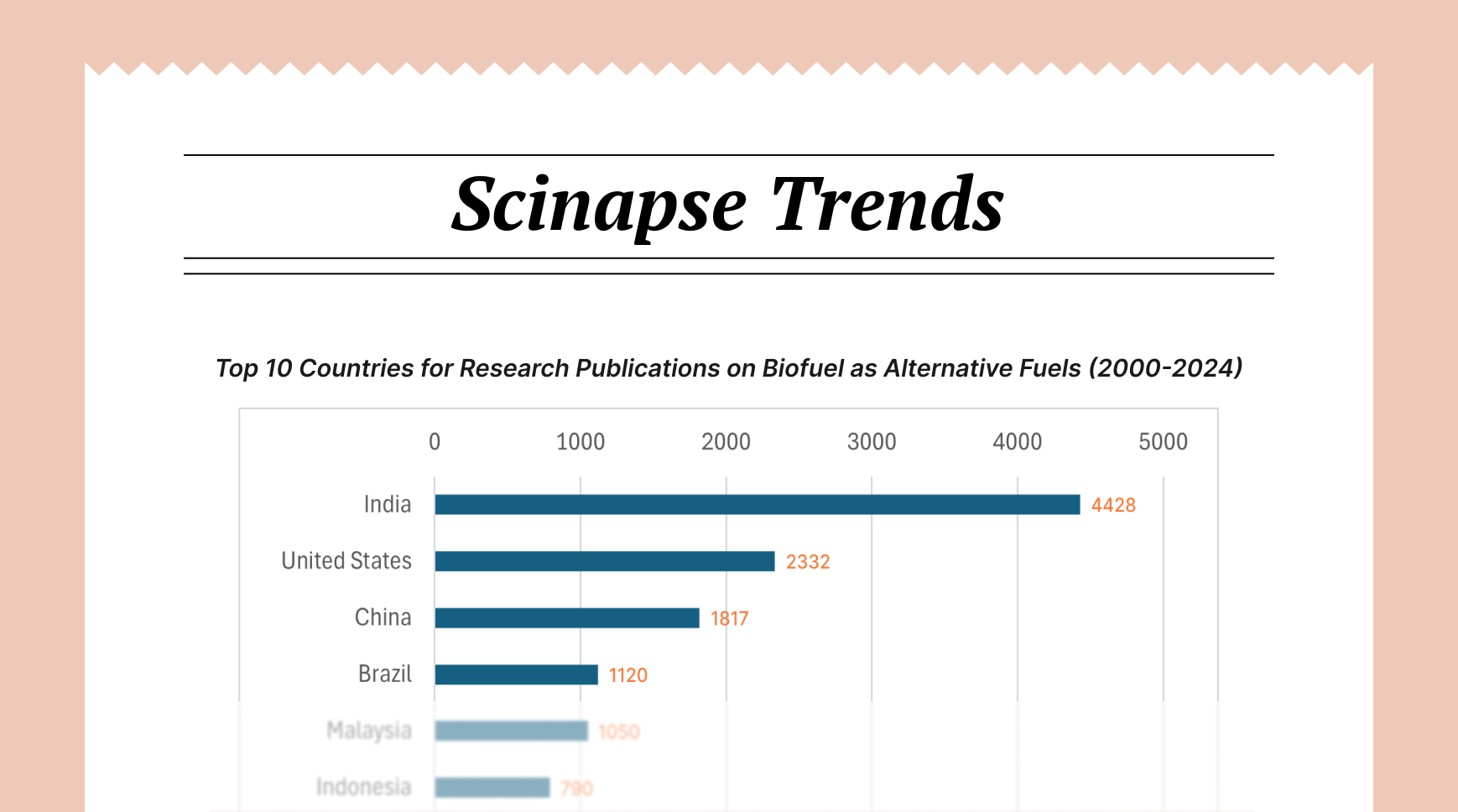Why Write a Literature Review and How to Do It Effortlessly

Although important, the literature review remains one of the most challenging and time-consuming aspects of research for many scholars. From graduate students to seasoned researchers exploring new domains, the process of synthesizing existing knowledge can feel overwhelming. This article explores both the fundamental rationale behind literature reviews and practical strategies for completing them efficiently. By understanding why literature reviews matter and adopting streamlined approaches—including leveraging tools like Scinapse—researchers can transform this essential academic task from a daunting obstacle into a manageable and even intellectually rewarding endeavor.

Why Write a Literature Review?
1- Contextualizing Your Research
Perhaps the most obvious function of the literature review is to situate your work within the existing scholarly conversation. No research exists in isolation; each study builds upon, challenges, or extends previous work in the field. This contextualization serves multiple purposes:
- It establishes the historical development of your research problem
- It identifies the theoretical frameworks that have been applied previously
- It demonstrates how your study addresses gaps or limitations in existing scholarship
- It justifies your methodological choices based on prior research
Without this scholarly contextualization, research exists in an intellectual vacuum, unable to contribute meaningfully to cumulative knowledge development.
2- Avoiding Unnecessary Duplication
Literature reviews prevent researchers from inadvertently duplicating existing work. In the increasingly specialized landscape of academic research, where thousands of studies are published daily across countless journals, staying informed about current scholarship has become exceptionally challenging. By conducting a thorough literature review, researchers ensure that their work genuinely extends knowledge rather than merely replicating previous findings. This efficiency function benefits both individual researchers—preventing wasted effort on already-answered questions—and the broader scholarly community by promoting incremental knowledge advancement.
3- Refining Research Questions and Methodology
Well-executed literature reviews play a crucial role in refining research questions and methodological approaches. Through critical engagement with existing scholarship, researchers can identify:
- Which questions remain unanswered or inadequately addressed
- Which methodological approaches have proven most effective for similar questions
- Which theoretical frameworks offer the most explanatory power
- Which measurement instruments demonstrate reliability and validity
This refinement process transforms vague research interests into focused, answerable questions and helps researchers avoid methodological pitfalls identified in previous studies.
4- Building Academic Credibility
Literature reviews demonstrate scholarly competence and establish academic credibility. By engaging critically with relevant research, authors signal their understanding of disciplinary conventions, methodological standards, and theoretical debates. This demonstration of scholarly mastery proves particularly important for early-career researchers and graduate students seeking to establish themselves within their fields. The literature review functions as an intellectual passport that grants entry into specialized scholarly communities, with thoroughness and analytical rigor serving as the visa stamps of academic legitimacy.
How to Write a Literature Review Effortlessly? 5 Steps to Follow
1- Start with a Clear Purpose
The path to an effortless literature review begins with a clearly defined purpose. Rather than approaching the literature review as a comprehensive summary of everything written on a topic—an impossible task in most fields—focus on developing a specific research question that will guide your search and synthesis. This purposeful approach transforms the literature review from an overwhelming catalog of everything into a targeted exploration of what matters for your specific research objectives.
Questions to clarify your purpose include:
- What specific question am I trying to answer?
- What aspects of the literature are most relevant to my research problem?
- What period should my review cover?
- What theoretical perspective will frame my synthesis?
This clarification process prevents the common pitfall of gathering hundreds of tangentially related sources without a clear direction for synthesis.
2- Develop a Systematic Search Strategy
An effortless literature review requires a systematic search strategy that balances comprehensiveness with efficiency. Rather than randomly collecting sources or restricting yourself to familiar publications, develop a structured approach that includes:
- Identifying key databases relevant to your field (e.g., PubMed for medicine, ERIC for education, PsycINFO for psychology)
- Formulating precise search terms using Boolean operators and controlled vocabulary
- Setting clear inclusion and exclusion criteria for source selection
- Establishing a protocol for documenting the search process to ensure reproducibility
This systematic approach prevents both excessive collection of marginally relevant sources and accidental omission of crucial publications. By frontloading methodological decisions about search parameters, researchers can avoid the common problem of repeatedly returning to databases with slightly modified searches.
3- Implement Effective Reading Strategies
Not all articles deserve the same amount of reading time. Develop a tiered reading strategy that allocates your attention according to each source's relevance to your specific research question:
- First-level screening: Review titles and abstracts to determine basic relevance
- Second-level screening: Skim introduction, methods, and conclusion sections to assess methodological quality and relevance
- Deep reading: Thoroughly analyze only those sources with direct relevance to your research question
This hierarchical approach prevents the common mistake of reading everything with equal depth, significantly reducing the time investment required for literature review completion.
When conducting deep reading, focus on extracting specific elements:
- Research questions and methodology
- Key findings and limitations
- Theoretical frameworks employed
- Gaps identified by the authors
- Connections to your specific research interests
4- Utilize Note-Taking Systems
Effective note-taking transforms the literature review from a fragmented process into a coherent analytical activity. Rather than collecting disconnected summaries, develop a structured note-taking system that facilitates synthesis across sources. Whether using traditional methods like index cards or digital tools like reference management software, ensure your notes capture:
- Complete bibliographic information
- Core findings and methodological details
- Your critical assessment of strengths and limitations
- Potential connections to other sources
- Relevance to specific aspects of your research question
By organizing notes thematically rather than by individual source, you begin the synthesis process during reading rather than treating it as a separate stage after collection is complete.
5- Write Iteratively Rather Than Linearly
Abandon the myth that literature reviews must be written in a single linear process after all reading is complete. Instead, adopt an iterative approach that interweaves reading and writing throughout the process:
- Begin drafting preliminary syntheses after reviewing initial sources
- Identify gaps in your understanding that require additional sources
- Revise your syntheses as new literature is incorporated
- Allow your organization to evolve as patterns emerge across sources
This iterative approach prevents the common scenario of facing hundreds of notes without a clear writing strategy. By treating writing as an ongoing analytical tool rather than a final product, the literature review emerges organically through progressive refinement rather than overwhelming last-minute composition.
Ultimately, the "effortless" literature review remains a relative term—scholarly synthesis will always require intellectual engagement and critical thinking. However, by implementing purposeful planning, systematic search strategies, effective reading techniques, and digital assistance tools, researchers can significantly reduce unnecessary friction in the process, freeing cognitive resources for the meaningful analytical work that constitutes the true value of literature review.
Author: Uttkarsha B
- AI-Ethicist and STM Research & Publishing Expert
Never re-search again.
Scinapse is made by researchers for researchers.
Join the next generation of research at ⏯️ https://scinapse.io/
Pluto Labs
Pluto Labs helps researchers focus on their research by improving several inefficiencies in the academic research process. We offer data-driven insights from academic papers, allowing users to easily obtain review-level results for their desired range of papers.
https://pluto.im/





Comments ()